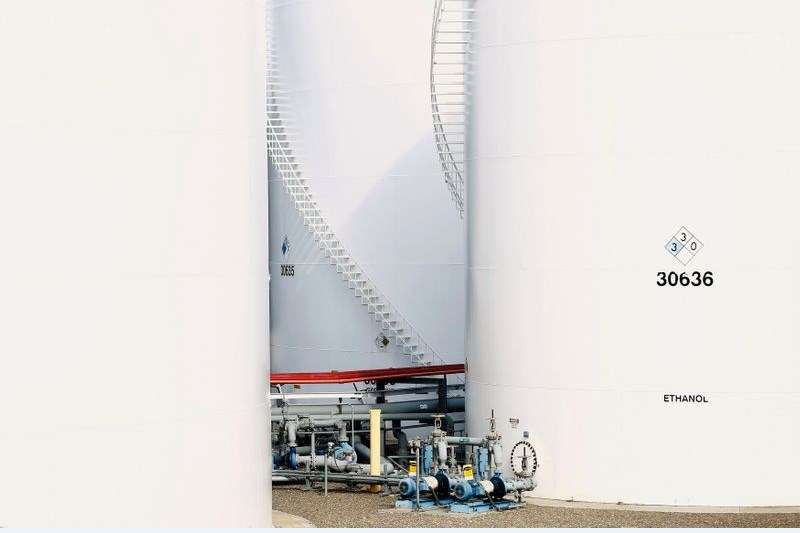By Marianna Parraga and Deisy Buitrago
HOUSTON/CARACAS (Reuters) – Venezuelan state oil company PDVSA plans to increase the use of digital currencies in crude and fuel exports as the U.S. reimposes oil sanctions on the country, three people familiar with the plan said.
The U.S. Treasury Department last week gave PDVSA’s customers and suppliers until May 31 to complete the transactions under a general license that it did not renew due to a lack of electoral reforms. The move will make it more difficult for the country to increase oil production and exports because companies will have to wait for individual U.S. permits to do business in Venezuela.
Since last year, PDVSA has been slowly moving oil sales to USDT, a digital currency, also known as whose value is pegged to the US dollar and designed to maintain a stable value. The return of oil sanctions accelerates this shift, a move to reduce the risk of sales proceeds being frozen in foreign bank accounts due to the measures, the people said.
“We have different currencies depending on what is written in the contracts,” Venezuelan oil minister Pedro Tellechea told Reuters last week, adding that in some contracts digital currency could be the preferred payment method.
The US dollar is the currency of choice for transactions in the global oil market. Although emerging in some countries, cryptocurrency payments are not common.
Tether said in an email that it respects the U.S. Treasury Department’s list of sanctioned entities and “is committed to ensuring that sanctions addresses are immediately frozen.”
Remove ads
.
Last year, PDVSA was rocked by a corruption scandal following the discovery of about $21 billion in unexplained claims for oil exports in recent years, partly related to previous transactions involving other cryptocurrencies.
The country’s oil exports have increased under Tellechea, who took over Venezuela’s oil ministry after the scandal. Boosted by U.S. permits that allowed sales, exports reached about 900,000 barrels per day in March, the highest in four years.
SLOW BUT SURE
By the end of the first quarter, PDVSA had moved many spot oil deals without swaps to a contract model that required prepayment for half the value of each cargo in USDT.
PDVSA also requires any new customer applying to conduct oil transactions to hold cryptocurrency in a digital wallet. The requirement is even enforced in some old contracts that don’t specifically mention the use of USDT, one of the people said.
When Washington issued the six-month permit in October that allowed trading houses and former PDVSA clients to resume business with Venezuela, most of them resorted to intermediaries to meet digital transaction requirements.
“USDT transactions, as PDVSA requires them to do, do not pass through any trader’s compliance department, so the only way to make it work is to work with an intermediary,” said one trader, referring to how uncommon it remains is to pay for oil in digital currency.
PDVSA has relied on middlemen for its own oil sales, especially to China, since the US imposed secondary sanctions on Venezuela in 2020, disrupting relations with major trading partners.
Remove ads
.
LESS CASH
Increasingly relying on intermediaries for transactions could allow PDVSA to avoid sanctions, but this will mean a smaller share of oil revenues ends up in its own pockets.
Minister Tellechea said last week that the country expects to continue signing contracts and expanding oil and gas projects during the 45-day wind-down period set by the US, and will then ask potential customers to apply for specific licenses.
Oil analysts expect that even if Washington immediately issues individual permits, Venezuela’s oil production, exports and revenues will soon reach a ceiling.
Tellechea rejected that view, saying PDVSA has “great strength in trade” and is commercially prepared to handle the return of Washington’s sanctions.


